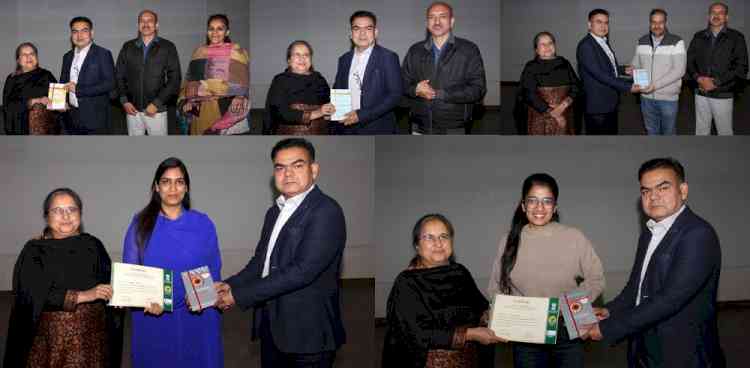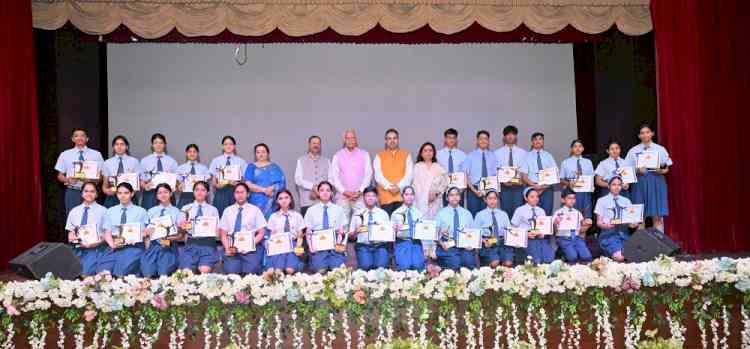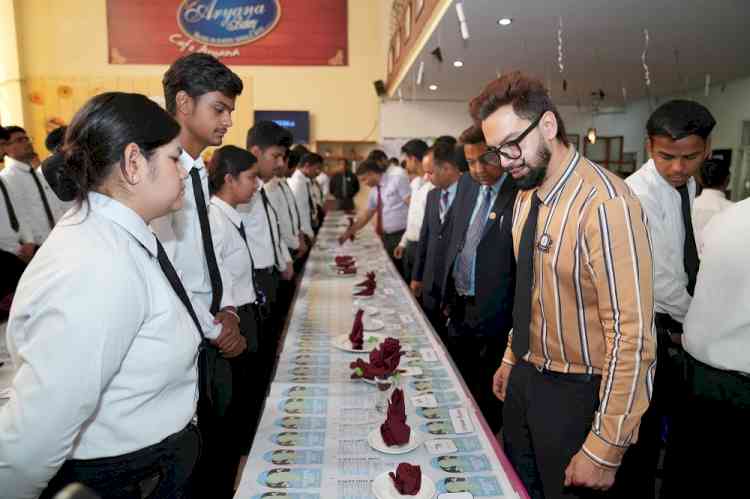National symposium on Genomics Revolution concludes at PAU
Phenomics and Genomics, a way to heat-tolerant varietal development: Experts

Ludhiana, February 29, 2024: “With global warming being one of the major effects of the climate change, eight heat-tolerant maize hybrids are being deployed on over 50,000 hectares in South Asian Countries, including Bangladesh, Bhutan, India, Nepal and Pakistan under public-private partnership,” divulged a scientist Dr PH Zaidi from International Maize and Wheat Improvement Centre (CIMMYT), Hyderabad. He was chairing the session on “Genomic Interventions for Climate Reliance” during the National Symposium on “Genomics Revolution to Foster Advances and Innovations in Crop Improvement,” which concluded at Punjab Agricultural University (PAU) today. The symposium was organised under the aegis of Dr GS Khush Institute of Genetics, Plant Breeding and Biotechnology, PAU.
Dr Satbir Singh Gosal, Vice-Chancellor, PAU and Dr AS Dhatt, Director of Research, while lauding the efforts of the organizers, observed, “The symposium, which delved into the intricacies of genomics and its application in agriculture, will act as a catalyst for progress in agricultural innovation.”
While chairing the plenary session, Dr Parveen Chhuneja, Director, School of Agricultural Biotechnology, underscored the emphasis for building connections for the advancement of collective mission of harnessing genomics for enhanced crop improvement. Highlighting the recommendations that emanated from scientific deliberations during the symposium, she informed that the experts called for amalgamation of artificial intelligence and machine learning for mining the novel haplotypes from crop genomics data. Expressing concern over weather fluctuations affecting the crop productivity, geneticists observed that advanced phenomics and genomics technologies opened new avenues for varietal development with heat tolerance, better input efficiency and high productivity, she told. It was also suggested to enhance the utilization of advanced genomic approaches and their scientific coupling with conventional breeding system for quick delivery of technologies to stakeholders, she added.
Dr Surinder Sandhu, Principal Maize Breeder, observed that genomics had a potential to bring in another agricultural revolution. To broaden and fast-track the horizon in utilization of wild crop relatives to break domestication bottlenecks, paradigm shift is needed in productivity and quality, and to combat abiotic and biotic stresses. To precise the breeding process for the development of novel genotypes and for trait specific breeding, gene editing offered an attractive alternative, told she, while proposing a vote of thanks.
Dr JS Sandhu, Professor of Agricultural Biotechnology, conducted the programme.


 City Air News
City Air News 










